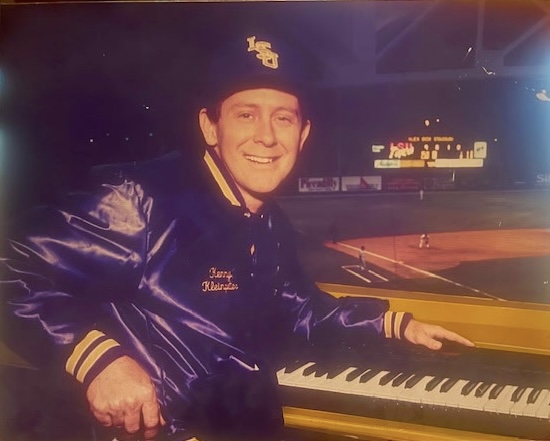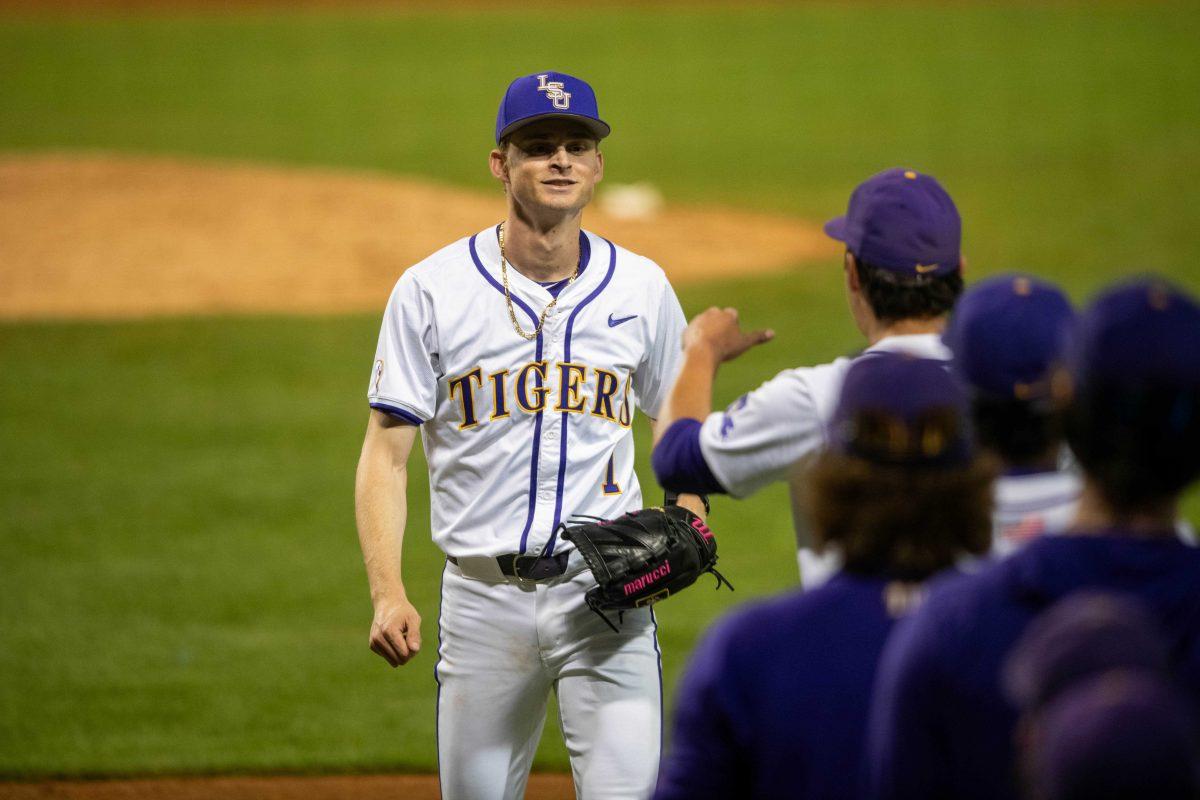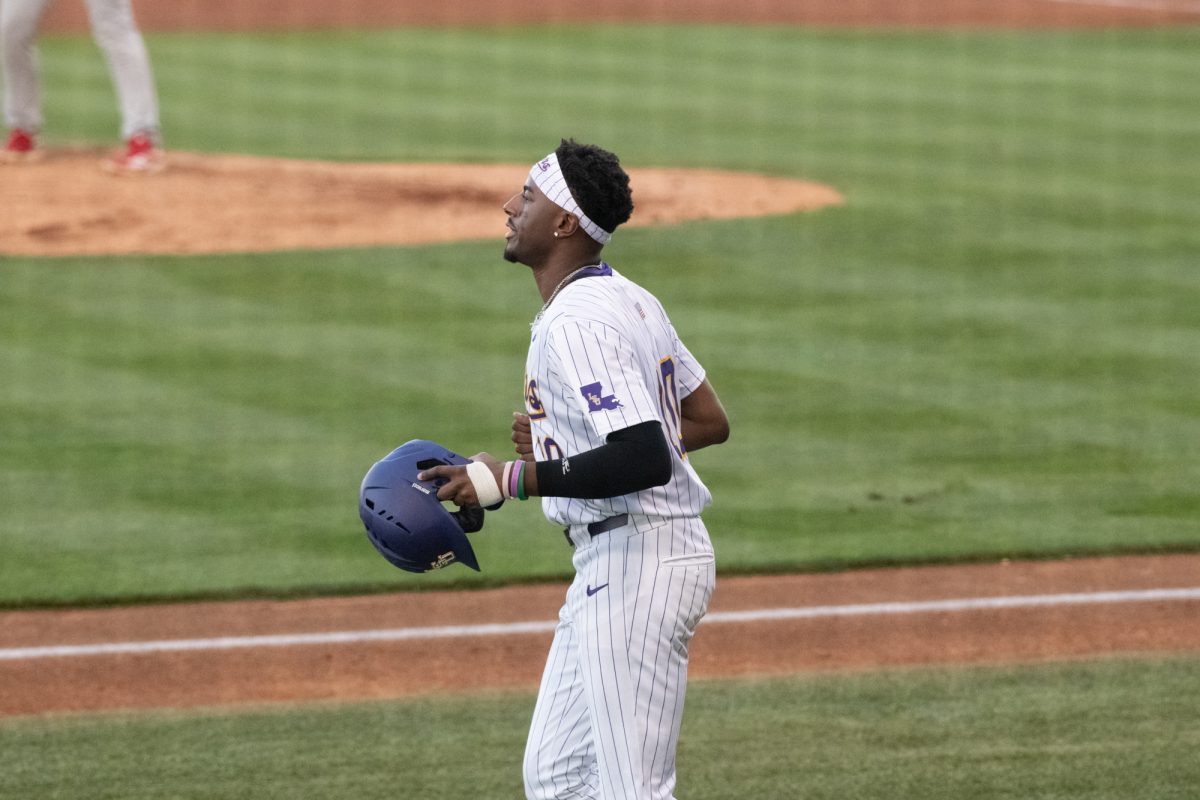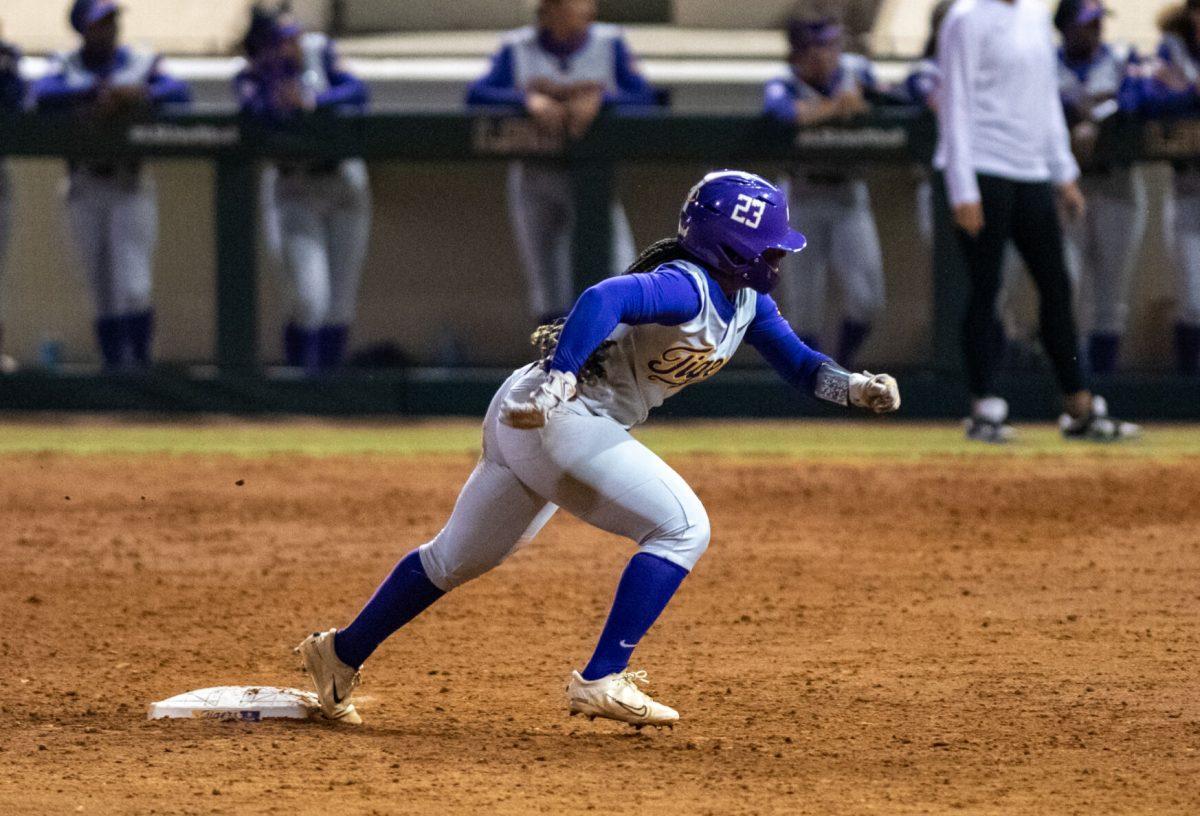Look for Kenny Kleinpeter’s musical works on the streaming app of your choice, and you’ll be greeted with a lovely lineup of albums, such as “Spirits of Highland” and “Louisiana Odyssey,” whose names and cover art evoke distinctly Louisianan scenes of quiet tranquility. The music fits the theme, with most tracks being just peaceful piano, sometimes accompanied by lush strings.
Kenny Kleinpeter’s works are meant to relax, to transport the listener to a calm riverboat ride or the tranquil grounds of a castle. Few would expect he also soundtracked the meteoric rise of a sports dynasty, and that his hands produced music which shook stadiums.
Kleinpeter had never even seen a baseball game when he read that LSU was looking for organists in the paper. However, the opportunity stirred something in him. When he showed up, he only had to contend with two other players, and soon became the official organist for Tiger baseball.
His hiring in 1989 coincided with a baseball renaissance at LSU, with legendary coach Skip Bertman bringing the Tigers to only their third College World series in program history. And for the next five years, Kenny’s keys sounded throughout Alex Box as they went on to notch two national championships.
It took him a bit to get the hang of the job.
“It takes a special person to be a baseball organist because you don’t have any time to look at your music. You can’t even really think about what you’re playing. It’s so spontaneous that you might only have time for a few bars,” Kleinpeter said.
Fortunately, he had the help of a friend who pitched in the Minor League who taught him how to keep up with the game.
It was a difficult job at times. “The toughest was February, with how cold it was. My hands would freeze up, and I would have to try and play with gloves on.”
Sometimes the crowd would freeze up too.
“There were a lot of games, when we were doing pretty badly, and there wasn’t anything I could play to rile up the crowd,” Kleinpeter said.
He came to appreciate the paradoxical nature of his power as an organist.
“I loved when they won a series, or when they went to regionals. The crowd would always clap and engage. If the team was doing well, I did well, and if they were doing badly I did badly.”
However, one day, he was simply cut. The official reason was never exactly clear. Kleinpeter himself still doesn’t fully know to this day, although it didn’t help he had attracted the ire of athletics department officials when he played “Three Blind Mice” during a coaches’ committee meeting.
“I went to Skip Bertman, and he said there wasn’t really anything he could do. That was it. I hadn’t missed a game in five years.”
Kleinpeter didn’t do much baseball work after that. He was later hired by Southeastern University to do their organ parts.
“They eventually had to stop using my tape because they said it sounded too much like LSU,” Kleinpeter recounted.
Visit Alex Box Stadium today, and you’ll hear a small group of pre-recorded canned organ tunes, a small reminder of the real man that once held its job. The tunes are simple, and if the crowd is feeling good they might clap along.
For many fans, Kleinpeter and his organ are footnotes in the history of a monumental program. But for many others, the music he played is the backing to core memories.
“Sometimes I would let a few well-behaved kids come up and play on the organ a bit. They really liked it. I always hoped a few would pursue music down the road.”
Occasionally, if you browse SEC and LSU fan forums, you’ll find a thread or two still pushing for the return of the live organ. It may not be the cause of many, but the resurgence of the art of the baseball organ means it’s seriously worth considering.
“It adds a lot to the spontaneity of the event, it separates moments from the run-of-the-mill processes. The canned organ tends to cut out at random, it doesn’t really sound spontaneous. It sounds cheap,” Kleinpeter said.
Reviving the live organ would set the program apart from college contemporaries and give Alex Box Stadium a totally unique environment within the SEC. It would add a dynamic quality to games, as the flexibility of a human player can allow for music to adapt quickly to big moments and provide added intensity during great games.
Furthermore, a live organist could significantly boost the LSU brand. St. Louis Cardinals organist Jeremy Boyer has received millions of views across social media for his playing, and a live organist could too provide LSU baseball with a number of viral moments.
The organ is indelibly tied to baseball. It should be celebrated more, especially by a program with the history and prestige of the LSU Tigers.













